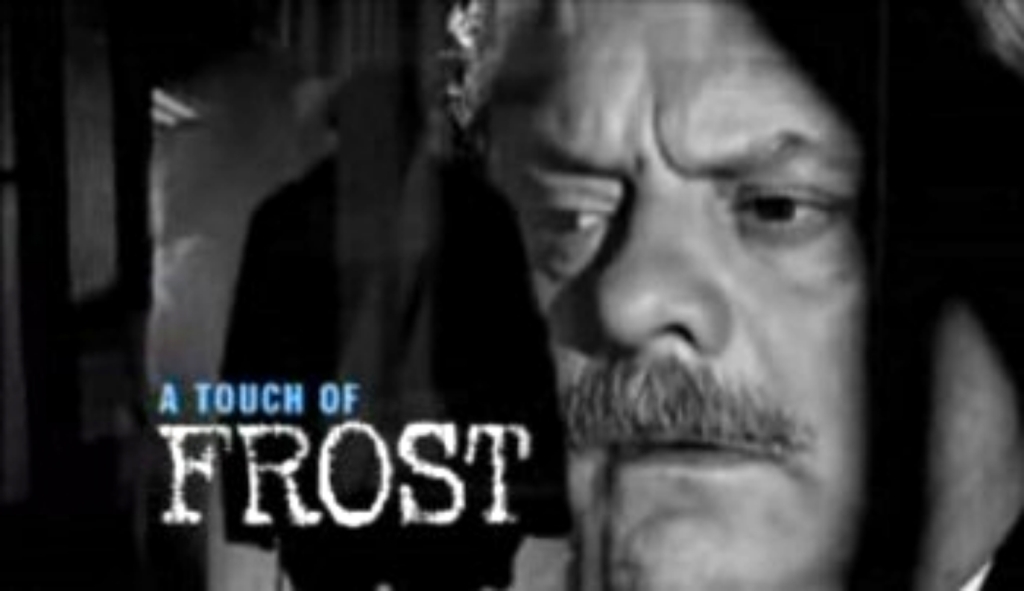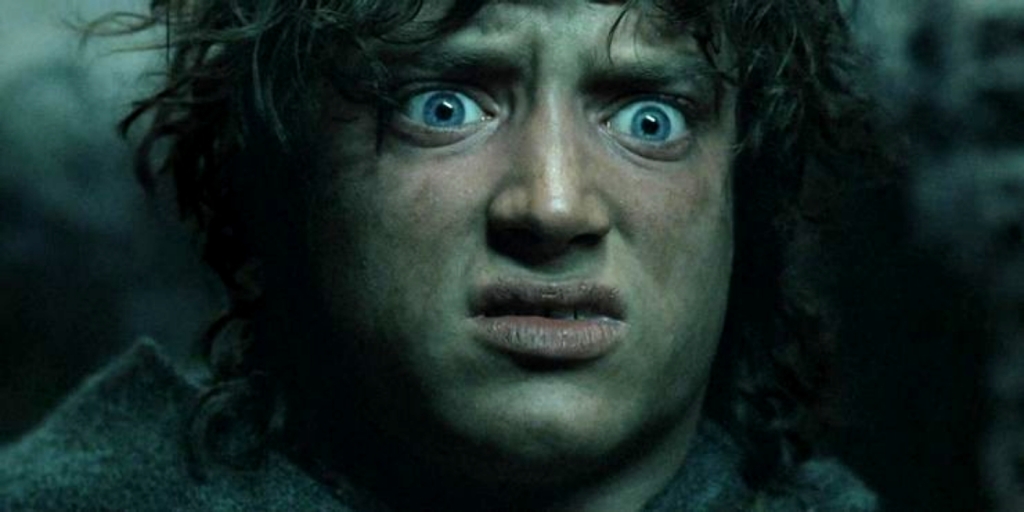Police/detective TV series seem to occupy most of prime time TV programmes these days. Not all of them are good, some are outright awful, some are funny, some are boring, some are suspenseful.
However, there are a number of traits that can ruin even the best of detective series (to say nothing of the médiocre, bad and awful ones!). Most of them are typical for USA series, although a small number of them can be found in UK ones as well.
Note: It is no secret that I prefer UK detective series over USA ones. Most of the reasons can be found in the characteristics listed below. (But there are others too: excessive shooting and car chases.) I am not saying that all the UK series are bereft of all of those shortcomings, only that these appear with a greater frequency in USA ones, where sometimes they even represent standing tropes of almost every one of them.
1. Multi-episode stories
If you have a given format, let us say 30 min., 45 min., 60 min. or 90 min., then conceive stories that fit in that particular time-span. There is nothing worse than seeing the dreaded text “to be continued…” instead of the dénouement. The watcher cannot feel anything else but being cheated. The promise of a solution is postponed for some other time. If you are not able to be in front of your TV that other time, you are screwed ‒ no culprit, no solution, nothing.

Alas! it happens even in some very good series. For instance, in Death in Paradise it was used twice, both times to announce important changes in the line-up. In the two-part episode Man Overboard the incumbent detective inspector Humphrey Goodman was replaced by the Irish Jack Mooney, while the two-part episode Beyond the Shining Sea (one of the most not good ones) marked the departure of detective sergeant Florence Cassell.
2. Deranged superior

This seems to be a permanent characteristic of USA series. Superiors who dislike their (capable) subordinates are an old cliché of USA police series, the earliest specimen that I can remember was McCloud’s Peter B. Clifford.

The most extreme representative of this category is doubtlessly NCIS: Naval Criminal Investigative Service’s Leroy Jethro Gibbs, a dangerously deranged psychopath and sociopath who constantly tortures and harasses his subordinates. It is less surprisingly so when you learn that he used to be a marine sniper whose main job was murdering people in cold blood.

The role was perfectly parodied in Sledge Hammer!’s captain Trunk played by Harrison Page.

On the contrary, UK series present a range of understanding superiors[1] like Midsomer Murders’ Tom Barnaby or Inspector George Gently’s George Gently. Of course some of those have some annoying superiors, like Tom Barnaby’s Acting Chief Superintendent John Cotton in Midsomer Murders or William Edward “Jack” Frost’s Superintendent Stanley Mullett from A Touch of Frost, but they are only pen-pushing bureaucratic freaks, not proper straight-jacket lunatics.

3. Nemesis
All-powerful arch-enemies who make fools of the heroes through many episodes are a slippery slope. They are initially represented as described: omnipotent and too ingenious to be caught. Of course, eventually they are caught and then disappointment overcomes: those crime genii ultimately turn out to be some under-average individuals who had neither the intelligence nor the ability to plan and perpetrate all those crimes and escape the good guys for such a long time.

Good examples are Red John from The Mentalist ‒ whenever the main story of an episode was about him, I turned it off (not even Amanda Righetti could convince me not to) ‒ and The Miniature Serial Killer from CSI: Crime Scene Investigation. Neither of them, when revealed, looked like a criminal mastermind. On the contrary, their rivals were the ones represented as nothing more but morons unable to identify and apprehend such weaklings for such a long time.

4. Powerful secret organisation

This entry is similar to the previous one, but instead of a single person, the nemesis is a whole organisation. Unlike the individual nemesis, these organisations perform actions that are directly directed against our heroes. Such organisations are usually represented as being above the law, not seldom even above the state itself. Sometimes they are a covert part of the state administration. At the moment the best example that comes to my mind is Person of Interest’s HR, an organization of corrupt cops affiliated with the local mob. These storylines soon become tedious, even more boring than the ones with an individual omnipotent enemy.
5. Threat from above
Another version of Nos. 3 & 4. This time the threatening factor is the state administration itself. It is understandable that the state might not want some culprit to be found by a certain investigation, especially if the culprit is the state itself or someone connected to it either legally or illegally. What to say? Becomes boring soon just like the previous two, maybe even sooner, because it makes the hero a tormented character who has to perform a feat larger than life (larger than the state) like a non-fantasy Frodo (not necessarily with that permanently constipated face expression).

6. Killing the suspect
In USA series the suspect rarely has a chance for a fair trial. He is surprisingly often murdered at the end of the episode instead of being handed over to the judicial system. This seems to be a logical conclusion of a whodunit in the USA mentality. Things like that never happen in UK series (except maybe as exceptions, but I cannot recall a single one).
There might be a reason behind that phenomenon. By simply executing the suspect a lot of taxpayers’ money that would be otherwise squandered on a fair trial is saved (to be spent for even worse causes). And we all know how much every single official in USA is concerned about taxpayers’ money, do we not?
7. Not following the investigation

Finally, here is a typically UK trait. The episode goes on, things happen, but we are in the dark all the time until at the very end the main detective tells us who, why and with what did it. We do not follow his train of thought during the development of the story, but are eventually presented with a fait accompli. This is typical both of Sherlock Holmes and Agatha Christie.

Even some very good UK series rely on this format, e.g. Death in Paradise, but those can be forgiven because they are so entertaining and funny. On the other hand, in Midsomer Murders we follow the findings of inspector Tom Barnaby and can come to the same conclusions that he does as the episode unfolds.
8. Taking oneselves to seriously
UK series usually involve a good dose of humour into their stories. USA not so much. This is connected with the difference between UK and USA mentality, most obvious in sitcoms. UK sitcoms are as a rule better than USA ones because in the UK they are able to laugh at themselves, while in USA they can only laugh at others, the ones who are different and generally inferior (in one way or another) in any way[2].

However, there are (at least) two USA crime series that are not devoided of humour, The Closer and The Mysteries of Laura. Interestingly enough, in both the leading character is female, Kyra Sedgwick’s deputy chief Brenda Leigh Johnson and Debra Messing’s detective Laura Diamond, respectively.

9. Slasher gore
Although one cannot deny Midsomer Murders the imagination of killing people in so many inventive ways ‒ and at the same time the craftsmanship to use whatever they find as an appropriate tool to inflict slaughter ‒ the title for the most deranged bloodthirsty police series goes to a USA one.

Criminal Minds started more or less as expected for a USA series, with Mandy “Inigo Montoya” Patinkin leading a motley crew of expert profilers of serial criminals. However, as the series progressed the criminals did as well. With time they became more and more unhinged, their crimes more and more gory, their victims more and more atrociously tortured and mutilated. In short, the series became unwatchable[3].
One has to question oneself: is it really possible that so many ferocious criminals carrying out so many vicious crimes roam the USA freely? And then we see the news and get the answer…
10. Too many personal problems
It is not abnormal for police staff to have a private life away from the force. However, it is pretty annoying when those parallel plots take over the story from the main whodunit. This was quite noticeable in some episodes of CSI: Crime Scene Investigation with Catherine Willows being a single mother and Warrick Brown’s gambling addiction. It is even worse when some erotic tension is inserted between the heroes of the series (think of Gil Grissom and Sara Sidle from the same series), because all such tensions can be resolved in only two ways: either the characters come together or they separate forever. In both cases the outcome is a disappointing anticlimax.
On the other hand, in Midsomer Murders Tom’s wife Joyce Barnaby and her hobbies and interests play a significant role in some episodes, precisely because the crime in question is somehow connected to the aforementioned hobbies and interests of hers.

One series that I remember being free of officers’ private lives was The Bill from UK, which focused mostly on the everyday routine of policepersons of a British police station. The series was remarkable because the police was chiefly involved in ordinary, everyday mundane misdemeanours, offenses and infringements, and we saw only what the heroes did. No big crimes, no sizeable background stories and conspiracies[4].

The private life of policepersons was finely parodied in the UK sitcom The Thin Blue Line with both domestic and office squabbles of Inspector Raymond Fowler and his long-suffering live-in girlfriend of 10 years, Sergeant Patricia Dawkins[5].
11. Court dramas
When the major part of the episode is taking place in a court of law, one can anticipate that it would probably be a rather boring one. Mostly people talking to each other[6] with a flashback here and there.

If we wanted a court drama, we would watch a court drama film. And a superior one to those usually presented to us in crime series, e.g. Billy Wilder’s Witness for the Prosecution or Alfred Hitchcock’s The Paradine Case[7].
12. Beginning at the end
Seeing the end of a story and then rewinding back to the beginning usually means nothing good. After the consequence we are served with a caption saying “[time frame] before…” and then the story begins for real. I mean, this is not David Wark Griffith’s Intolerance, Orson Welles’s Citizen Kane or Sergio Leone’s Once upon a Time in America, it is just and ordinary episode of an ordinary series, for Perun’s sake!

Am I wrong or is this a typical scheme for telling us that something bad happened to some of the principal characters of the series?
And often it is not the very end that we witness at the beginning, but some intermediate ending, with the real one saved for the end of the episode.
13. Not that suspect
There are two types of suspect that kill any episode of a detective TV series.
The first is the most obvious one, who is suspected from the very beginning to the very end. The point of a whodunit story is surprise, so serving us a suspect with a cherry on top from the start of the investigation makes the whole investigation superfluous.
On the other hand, the surprise simply must not be too surprising. Pulling out someone who has not appeared in the rest of the story at all at all, a murderer ex machina, is just lazy screenwriting, it means that the rest of the story is pure waste of time.
So, if you want to create a good detective series, please avoid the aforementioned flaws. And do it in UK, for heaven’s sake!
PS: Personally, I cannot stand when the police apply the same criteria to someone who just got the world rid of a repulsive creature by treating him as an ordinary murderer. But that is just me.
[1] However, this does not mean that they will stand for slackening, bad behaviour or major mistakes.
[2] This trait was mentioned both by English actor and writer Stephen Fry in an interview and by musician, environmental activist, union advocate and professor of philosophy Randall E. Auxier in his paper A Very Naughty Boy: Getting Right with Brian published in the book Monty Python and Philosophy, edited by Gary L. Hardcastle and George A. Reisch.
[3] Patinkin allegedly departed the series at the start of season 3 due to being disturbed by its content.
[4] Moreover, between 1992 and 2004 the series included PC Polly Page played by the cute Lisa Geoghan!
[5] However, it is the stunning Mina Anwar as Constable Maggie Habib who puts my blood pump in a higher gear.
[6] Not that people talking to each other is a priori a bad thing. One of the best UK sitcoms, Antony Jay’s and Jonathan Lynn’s Yes Minister / Yes, Prime Minister, mostly consists of three men talking to each other.
[7] Incidentally, both starring the great Charles Laughton, the former as Sir Wilfrid Robarts Q.C. and the latter as Judge Lord Thomas Horfield.
